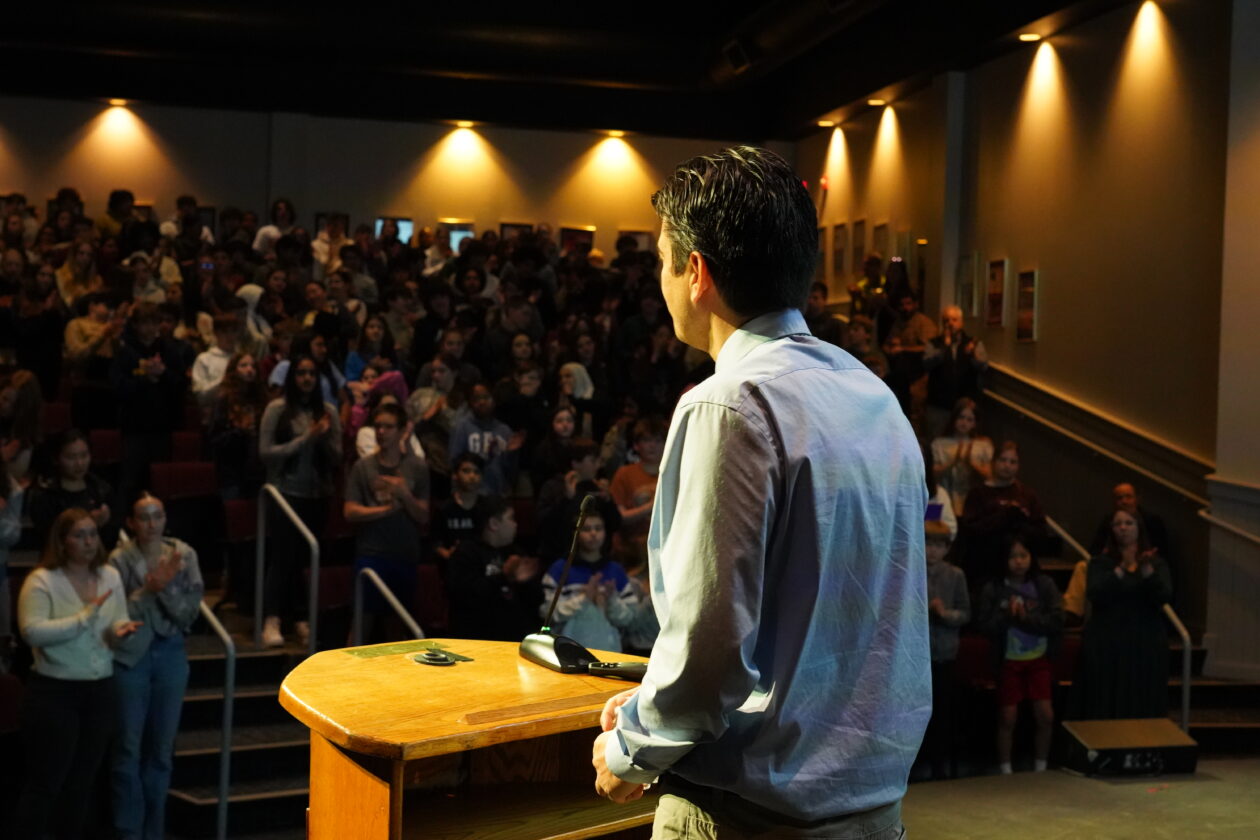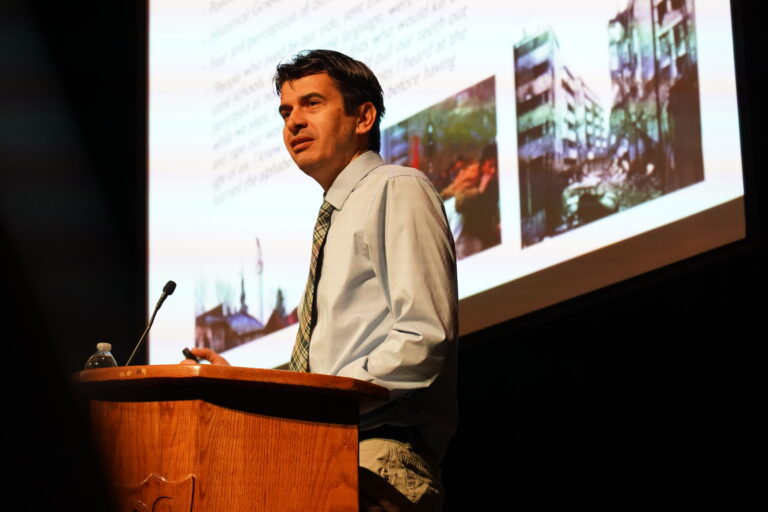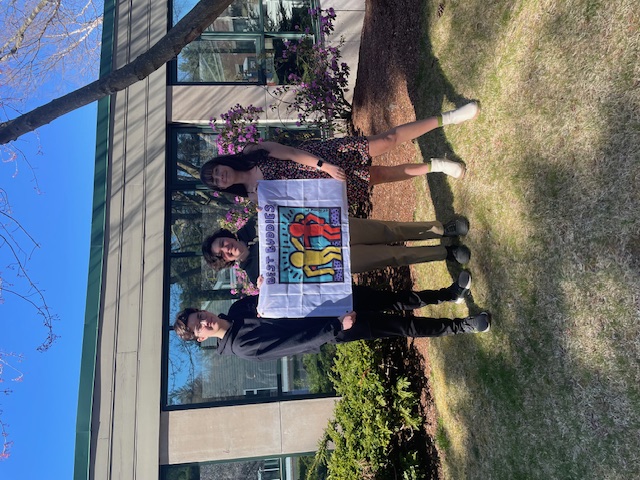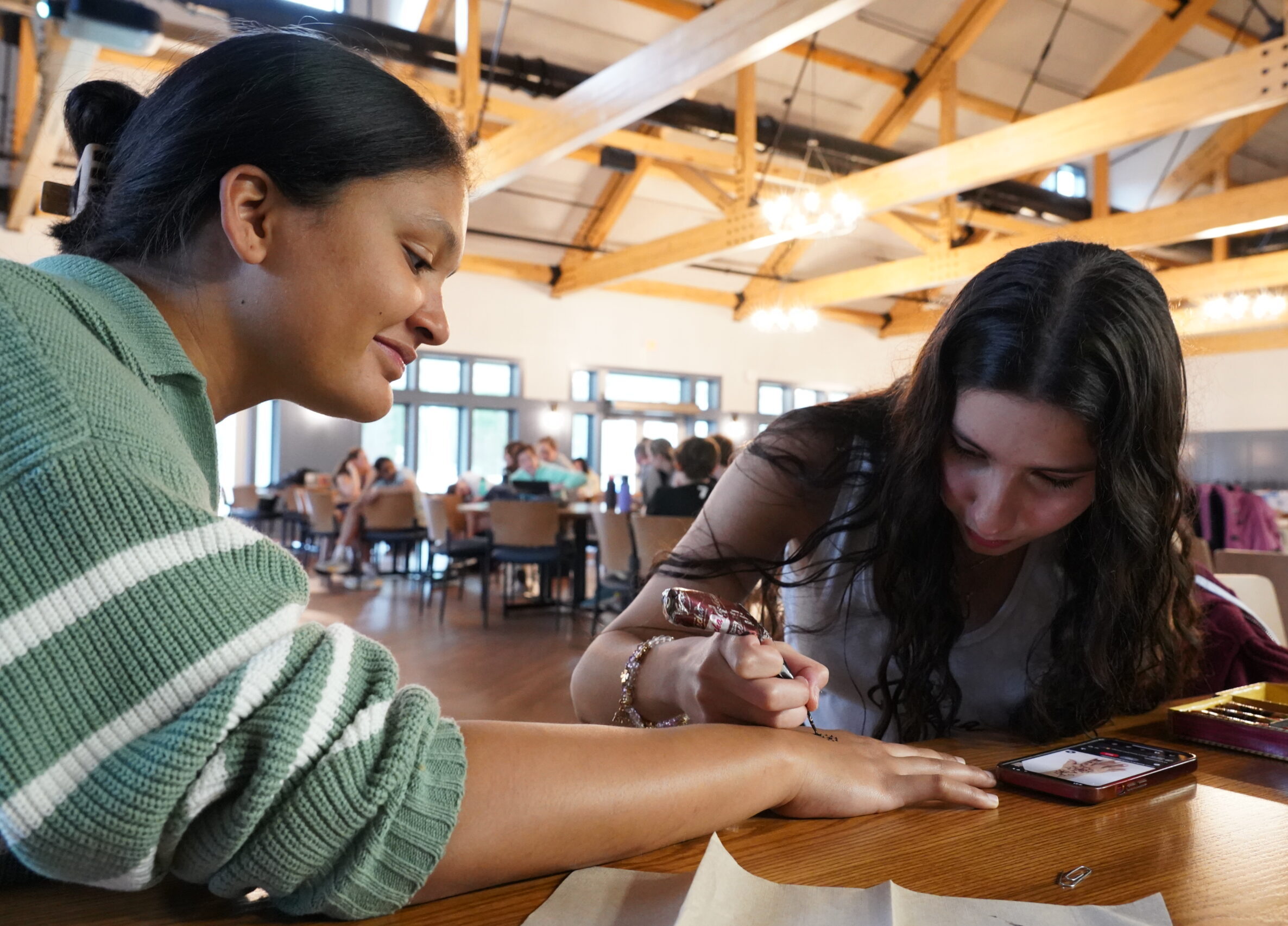By Elaine Loft, Staff Writer
The Derryfield community welcomed Alen Ombergovic, a Bosnian native, in a presentation made possible by the E. Charles Sanborn Visiting Fellow Fund. When armed conflict broke out, Omerbegovic was living with his family in the northeastern region of Bosnia and Herzegovina. He was confronted with the harsh realities of war at the young age of 16.
Ombergovic opened his talk with an overview of Bosnia, its history, and its people. He emphasized that Bosnia was a place where Muslims, Serbs, Croats and the Roma people all existed peacefully in adjoining neighborhoods. Bosnia was a “melting pot,” but the sentiment was, “if we are together, we are stronger.” Ombergovic noted that people from different faiths supported one another, both spiritually and even financially–often contributing to projects at other centers of worship.
Engaging the audience, Ombergovic then shared some of the causes that led to the Bosnian War, including: nationalism, political instability, historical grievances, fear, and one’s perception of others. “People who lived by our side, sent their children to the same schools, spoke the same language, were now portrayed as non-human.” He asked the students, faculty, and staff to turn to their neighbors to consider, “What makes people turn against one another? Against their neighbors and friends?”
Ombergovic followed by sharing his own lived experience—a stark juxtaposition of his daily life before and during the war. He noted he was a “typical 16-year-old boy,” who enjoyed school, hanging out with his friends and playing sports, generally “having fun in life.” He had never considered another life—a life lived within a battle zone—a life filled with danger. Everything changed on April 6, 1992, when full-scale hostilities broke out. Ombergovic’s home was surrounded by Serbian forces, so he and his family went to stay with his paternal grandparents in a (largely) Bosnian enclave. After ten days, Ombergovic said he convinced his mother to return to their own home, as he wanted to be near his friends and neighbors. Unfortunately, after that point, “there was no more escape for us,” they were trapped in the war zone. They could see tanks from their balcony, shooting at various sites, like mosques. Houses were ablaze in fire. Electricity was cut off from the region and they had limited access to food. The Bosnians gathered together each night in one house, so they could protect each other, and share their food.
On May 5, 1992 the Serbian forces encircled the village. The women and children under the age of 15 were taken away, and Ombergovic was separated from his mother. Enduring unimaginable challenges, he was detained in both the Susica and the Batkovic concentration camps during the most tumultuous period of the Bosnian War. Ombergovic shared many details of his traumatic experience with the rapt Derryfield audience. At the end of his impactful presentation, the audience stood in applause, in recognition of Ombergovic’s resilience and fortitude in the face of the cruel realities of war.
After Community Meeting, Ombergovic attended several history classes, and joined Derryfield students, faculty and staff for lunch, where he had extended conversations about his experiences both during and after the Croat-Bosniak war.




